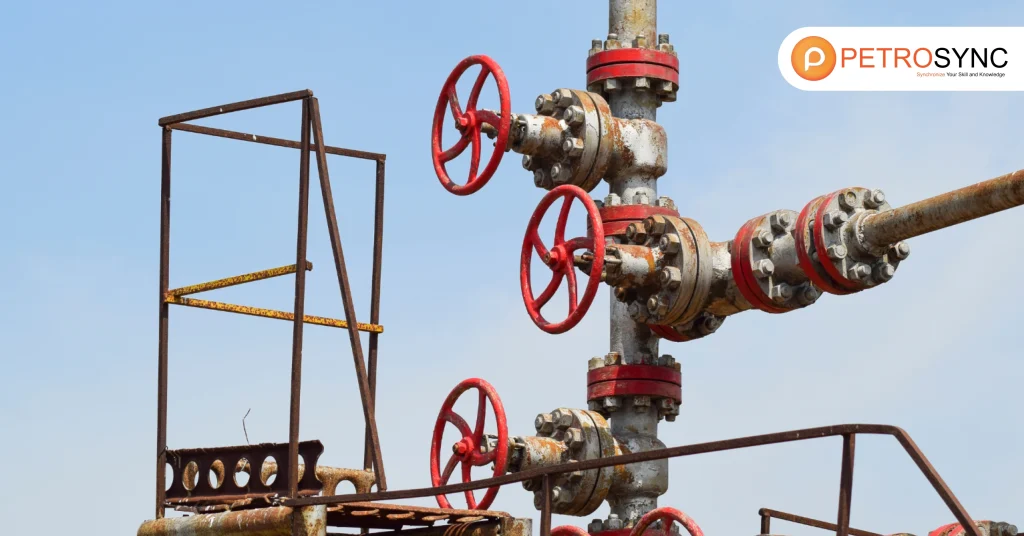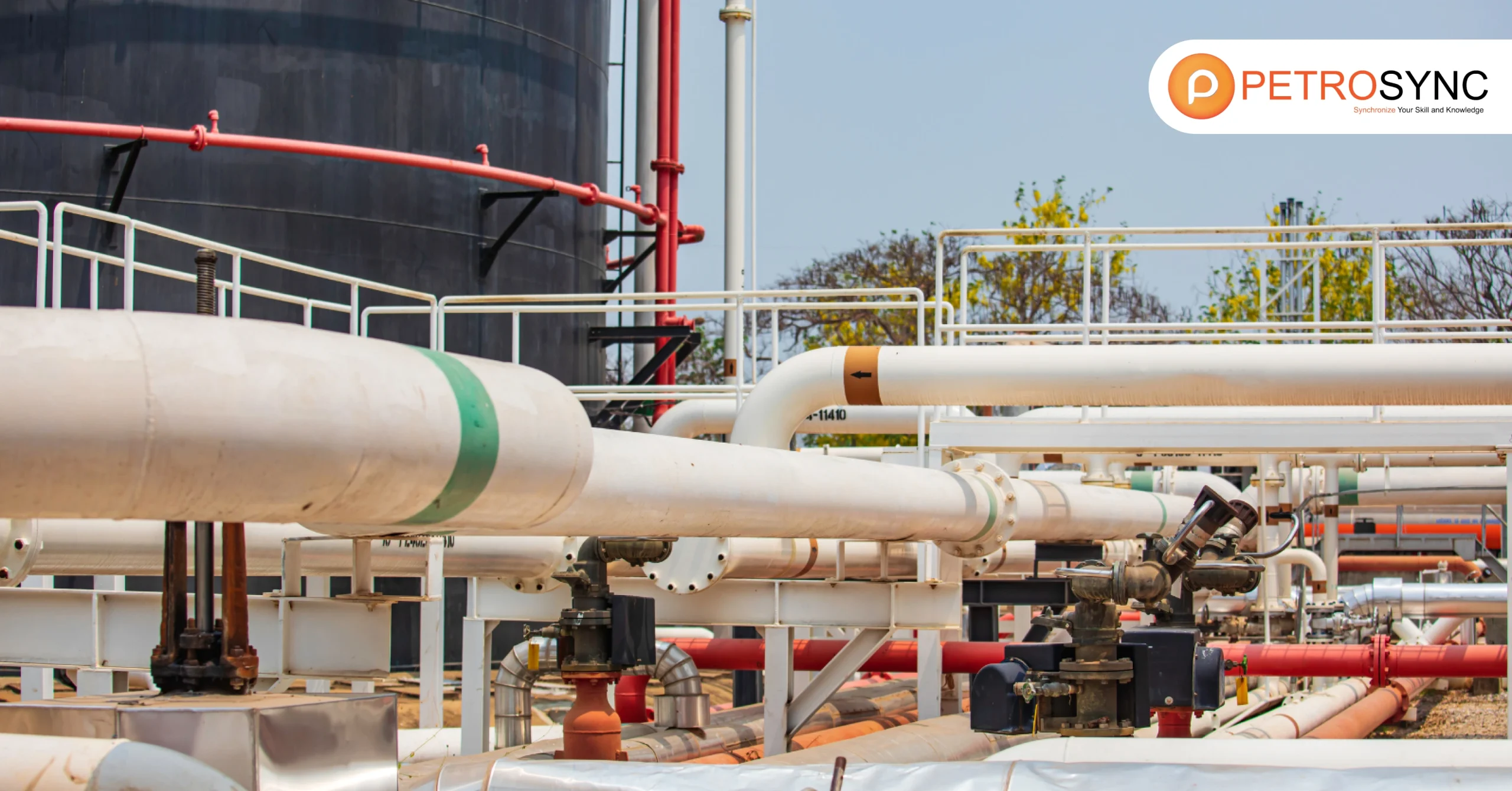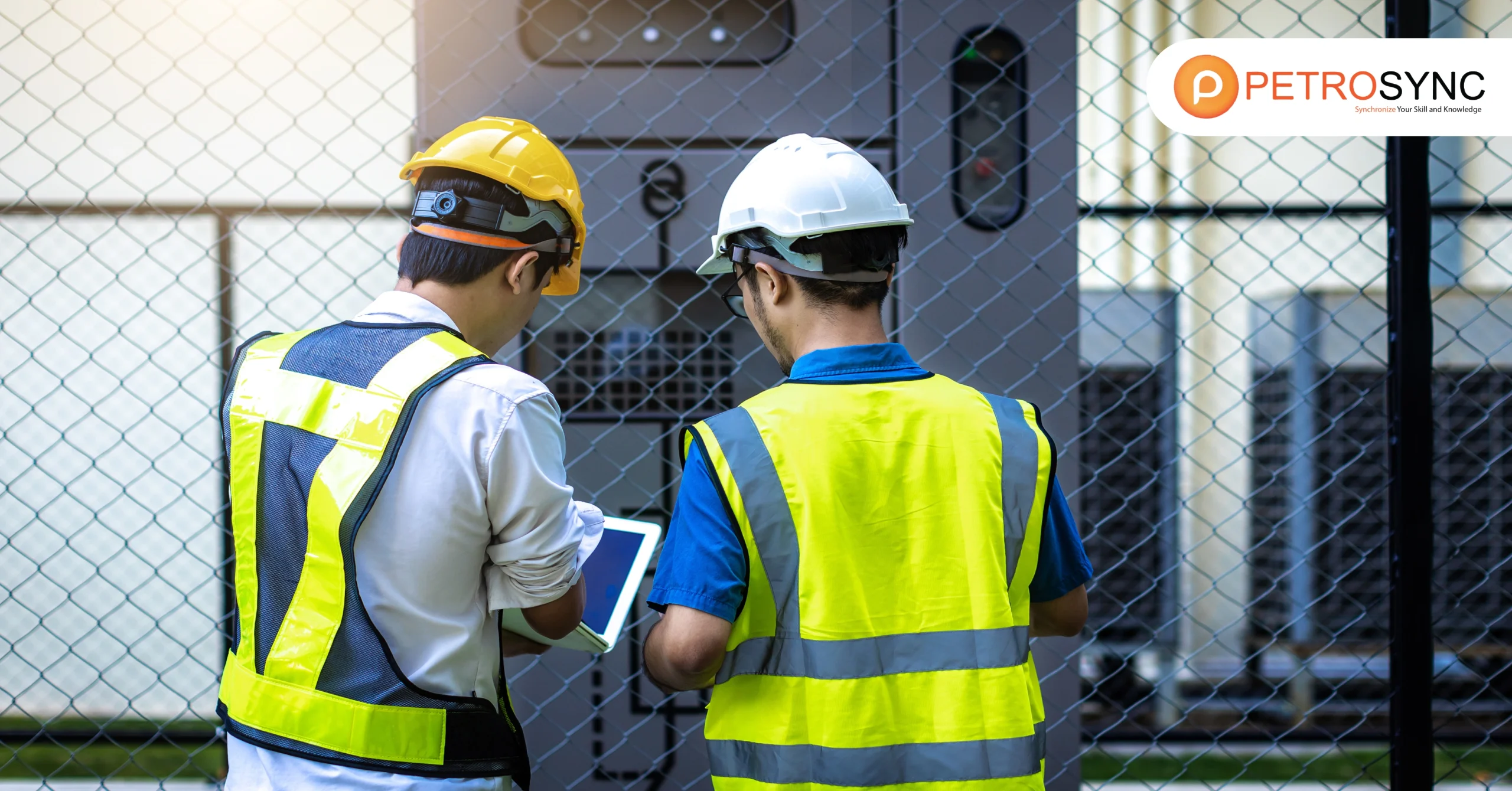In the ever-evolving domain of the oil and gas sector, the utmost importance lies in the dependability and security of piping systems. This is precisely where the API 570 standard assumes a fundamental role, serving as a cornerstone to ensure the integrity and efficiency of piping systems.
Within this article, we will delve into the essentials of API 570 requirements, presenting valuable insights for engineers aspiring to excel in the realm of pipeline maintenance and inspection and maintenance.
What Is API 570?

API 570 is provides a complete standard for inspecting, assessing, repairing, and modifying in-service metallic and fiberglass-reinforced plastic (FRP) pipe systems, as well as pressure relief devices. Unless indicated as optional, this code applies to all hydrocarbon and chemical process pipe systems.
API 570 has been revised four times since its initial publication in 1993, with the most recent edition being issued in 2016. Although it was originally designed for the petroleum and chemical industries, its application has subsequently expanded to include a wide range of sectors that use piping systems.
What is API Standards 570?
API 570, sometimes known as the “Piping Inspection Code,” describes the best ways to inspect, maintain, and modify piping systems. It focuses on in-service plumbing systems, assuring their long-term safety and reliability. API 570 is critical in industries where piping systems are subjected to high pressures and temperatures, such as oil refineries, gas processing plants, petrochemical facilities, and other energy-related applications.
Companies who follow API 570 can ensure that their piping systems remain in good working order, lowering the chance of breakdowns, leaks, or catastrophic occurrences. API 570 is not only a set of rules but also a framework to help businesses develop a systematic approach to maintaining the integrity of their piping systems.
This code applies to both metallic and non-metallic pipe systems and specifies inspection intervals, techniques, and assessment criteria for each kind of piping system. The purpose is to detect and address corrosion, erosion, cracks, and other signs of degradation before they jeopardize the system’s integrity. API 570 covers all in-service pipe systems, regardless of age, material, or operating environment, making it a versatile and comprehensive piping inspection standard.
What are the API 570 Requirements?
The requirements outlined in API 570 provide a structured approach to piping inspection and maintenance, with an emphasis on preventing incidents through regular, thorough inspections and timely repairs. API 570 requirements cover various aspects of piping inspection, including:
-
Inspection Planning and Frequency
API 570 emphasizes a structured inspection schedule based on the risk and service conditions of the piping. Inspections are conducted periodically to assess the integrity of the piping systems and identify any issues that may require attention. For example, high-risk systems in corrosive environments might require more frequent inspections, while low-risk systems in stable conditions might be inspected less often.
-
Inspection Techniques and Methods
The code specifies different inspection methods suitable for assessing the condition of piping systems. Common techniques include visual inspections, ultrasonic thickness measurements, radiographic testing, and magnetic particle testing. The choice of technique depends on the material, operating conditions, and specific risks associated with the piping system. These inspections help identify issues such as corrosion, erosion, and damage mechanisms.
-
Repair and Alteration Guidelines
API 570 provides clear guidelines for repairing and modifying in-service piping systems. Repairs must be performed by qualified personnel and must meet specific standards to ensure safety and reliability. Alterations to piping systems, including rerating, require careful consideration and often additional testing to verify that the modifications do not compromise the system’s integrity.
-
Documentation and Record-Keeping
Accurate and up-to-date records are essential for effective piping management. API 570 requires companies to maintain detailed records of inspections, repairs, and alterations for each piping system. These records allow inspectors and engineers to track the system’s history, evaluate trends, and make informed decisions about future inspections and maintenance activities.
-
Fitness-for-Service (FFS) Assessments
API 570 includes guidelines for conducting Fitness-for-Service (FFS) assessments to evaluate the condition of piping systems. FFS assessments determine whether a system can continue operating safely based on its current condition. These assessments are especially valuable for older piping systems, as they help companies decide whether to repair, replace, or retire a particular piping segment.
-
Inspector Qualification
API 570 mandates that piping inspections be carried out by certified personnel. Inspectors must hold an API 570 certification, which demonstrates their knowledge and competency in performing piping inspections according to the standard’s requirements. This certification ensures that the inspections are conducted by individuals who understand the technical aspects of piping integrity management.
-
Risk-Based Inspection (RBI)
API 570 promotes the use of risk-based inspection (RBI) methodologies, which involve assessing the likelihood and consequences of failure for each piping system. By identifying higher-risk systems, companies can prioritize inspections and maintenance activities, allocating resources to areas where they are most needed. RBI helps optimize inspection frequencies and reduces downtime by focusing on critical piping segments.
Following API 570 requirements can significantly improve safety and reliability in industries where piping systems play a vital role. Compliance with these requirements helps prevent incidents, reduces operational risks, and ensures that piping systems remain in optimal condition.
How Long Does it Take to Study for API 570?
Obtaining API 570 certification requires a commitment to study and a strong understanding of piping systems and inspection techniques. While the time needed to prepare varies depending on an individual’s experience and background, most candidates spend several weeks or months studying to pass the API 570 exam. The preparation timeline can be broken down as follows:
-
Experience Level
Candidates with extensive experience in piping inspection, maintenance, or engineering may require less study time than those new to the field. API 570 certification requires candidates to have a minimum amount of relevant experience, which ensures they have a foundational knowledge of piping systems.
-
Self-Study or Training Programs
Many candidates choose to enroll in training programs that cover the API 570 exam content. These programs, often offered by training providers specializing in oil and gas, provide structured learning, practice questions, and insights from industry experts. Training programs can shorten the study time by providing a focused approach to exam preparation.
-
Study Materials and Exam Preparation
The API 570 Body of Knowledge (BOK) outlines the topics covered on the exam. Candidates should familiarize themselves with the BOK, API 570 code, and other relevant API standards. Practice exams and study guides are valuable tools for reinforcing knowledge and assessing readiness.
-
Time Commitment
On average, candidates should allocate at least 150-200 hours of study time to prepare for the API 570 exam. This time can vary based on individual learning speed and familiarity with the material. Breaking down study time into manageable sessions and focusing on specific topics can help candidates retain information more effectively.
Preparing for the API 570 exam requires a comprehensive understanding of piping inspection, repair, and maintenance practices. While the study process is demanding, achieving API 570 certification is a valuable asset for professionals in the oil and gas, petrochemical, and energy industries.
What Are The Requirements for API 570 Certification?
In this section, we will delve into the specific criteria and qualifications that candidates need to meet to pursue the API 570 certification.
1. BS or Higher in Engineering or Technology
Each engineer is required to have at least a year of practical experience in carrying out inspection-related tasks as outlined in the API 570 standard. This experience can involve overseeing or directly conducting various inspection activities on in-service metallic and fiberglass-reinforced plastic (FRP) piping systems, as well as pressure relief devices. This qualification also applies to those with 3+ years of military service in a technical role.
2. 2-year Degree or Certificate in Engineering or Technology
Candidates should have a minimum of two years of hands-on experience in activities related to in-service piping systems. This experience can include designing, constructing, repairing, operating, or inspecting piping systems that are already in use. This qualification also applies to those with 2 years of military service in a technical role.
Furthermore, out of the total two years of experience, at least one year must involve either supervising or actively participating in inspection activities aligned with the guidelines outlined in the API 570 standard.
In short, candidates need to be directly engaged in tasks such as conducting inspections, evaluating system integrity, identifying defects, and ensuring compliance with API 570 specifications.
3. High School Diploma or Equivalent
Candidates are required to possess at least three years of practical involvement in tasks associated with operational piping systems. This involvement encompasses tasks such as designing, constructing, repairing, operating, or inspecting piping systems that are currently in service.
Furthermore, in one of the three years of experience, candidates are expected to be actively involved in activities like conducting inspections, assessing system integrity, identifying flaws, and ensuring adherence to API 570 standards.
4. No Formal Education
For piping inspectors without formal education, the criteria remain the same as previously mentioned, but with a minimum requirement of five years of practical involvement in tasks related to in-service piping systems.
This experience includes design, construction, repair, operation, and inspection of piping systems in use. Of these five years, at least one year should be dedicated to supervising or actively participating in inspection activities aligned with API 570 guidelines.
What Are The Requirements for API 570 Recertification?
In this section, we will delve into the specific criteria and qualifications that API 570 inspectors need to meet to do the recertification.
1. Recertification Overview
- API 570 Piping inspectors must recertify every three years through the ICP Portal.
- Recertification applications can be filed 90 days before the certification’s expiry and 90 days after, with late fees after expiry.
- If not recertified within the 90-day grace period, a new application, fees, and a full examination are needed for recertification.
However, heavy work schedules or work abroad do not excuse timely renewal filing. Accurate supervisor contact info is vital for application processing; delays may hinder recertification.
2. Work Requirements – Every 3 years
API 570 inspectors must show that at least 20% of their time during the last three-year certification period was spent either performing or overseeing in-service piping inspections as outlined in the API 570 inspection code. If inspectors have not been actively involved in inspection activities, they will need to take the complete examination.
3. Continuing Professional Development (CPD) – Every 3 years
Starting January 1, 2022, Continuing Professional Development (CPD) hours will be part of the 3-year recertification criteria. CPD activities should be related to API 570 certification. ICP will introduce CPD hours gradually, with 8 CPD hours needed for certifications expiring after January 1, 2023. The full requirement of 24 CPD hours will be applicable for certifications expiring on or after January 1, 2025. Refer to the table below:
|
Recertifying Year |
Number of CPD Hours Required |
| 2023 | Candidates renewing their certification must provide 8 CPD hours from the past 3 years. |
| 2024 | Candidates renewing their certification must provide 16 CPD hours from the past 3 years. |
| 2025 | Candidates renewing their certification must provide 24 CPD hours from the past 3 years.
Starting now, every recertification requires 24 CPD hours every 3-year period. A maximum of 16 hours can come from one activity category. |
4. Webquiz of Every 6 Years
Every piping inspector must complete an online, open-book quiz every six years for recertification. The quiz is accessible 90 days before and after your certification’s expiration date. However, the quiz will not be available after this grace period or if your certification has expired.
You can take the quiz before or after submitting your recertification application. To access the quiz, log into your ICP Portal account and navigate to your 570 certification page. If a quiz is due, a notification will appear with a link to the quiz. Alternatively, you can directly visit the Web Quiz Gateway. If a quiz is required, a bold red notification will indicate so.
Below are the detailed information regarding the webquiz:
- Every quiz consists of 25 questions that cover the modifications in the applicable API codes during the past six years.
- You are given a total of four hours to finish the quiz, with the option to pause or interrupt it up to three times.
- In case of failing the quiz on the first attempt, you can retake it once. However, failing it a second time will result in being ineligible for recertification. To recertify, you’ll need to submit a new application and complete the full version of the exam.
Certifying and recertifying for API 570 can be a complex process, but there is a way to make it smooth-sailing. By enrolling in API 570 training, you can simplify the procedure and equip yourself with the knowledge and skills needed to confidently navigate the certification requirements.
PetroSync: Your Trusted Partner for API 570 Requirements Training
PetroSync offers comprehensive training to help you understand the standards, codes, and inspection techniques. We can help with the certification process as we also provide the service for you in the registration process.
Our API 570 training is designed to align with the certification requirements, ensuring that you have the expertise to fulfill the criteria effectively. Our experienced instructor offers practical insights and real-world examples, enabling you to grasp the concepts with ease.
By joining our training, you not only gain the necessary knowledge but also gain access to a supportive community of professionals who share similar goals. With PetroSync, you’re not just preparing for certification; you’re setting yourself up for success in the industry.

Results-oriented and thorough SEO specialist with extensive experience in conducting keyword research, developing and implementing digital website promotion strategies and plans, managing campaigns to develop company websites in the digital world, excellent knowledge of marketing techniques and principles, and attentive strong attention to detail.







